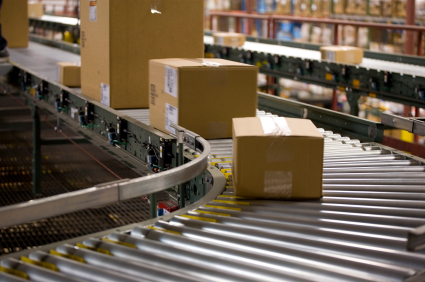The rundown – import requirements, documentation and Australian customs rules

Whether you are an individual or a business, deciphering your Australian customs obligations when it comes to importing goods can be overwhelming. But don’t worry, that’s why your licensed customs broker pals at McLintock International are here!
Read on for our rundown of import requirements, documentation and Australian customs regulations for anybody importing goods into Australia from overseas. And, we’re happy to chat if you have any queries relating to your specific circumstances – call us on 08 9336 3001.
Firstly, we need to consider the nature of the goods that are being imported. There is a list of prohibited goods on the Australian Border Force website that include the obvious things like drugs, weapons and toys containing toxic materials, but there are also some items you might not expect like laser pointers, goods bearing the word ANZAC and lighters. It’s always a good idea to engage with an Australian customs broker to ensure what you are importing won’t get you into any trouble when it arrives – no matter how well-meaning you might be.
Once you know you can safely import your goods, you should find out the import entry costs and value of your freight. You should also consider where you are importing the goods from – this will help to determine preferential benefits like reduced fees due to trade agreements. A licensed customs broker can consult with you on this to ensure you are not over or undervaluing your goods and help you check you are paying the relevant fees.
All imported shipments require a commercial invoice, bill of lading (otherwise known as an airway bill), packing list and insurance documentation if relevant. You may require extra forms and proof of permits depending on the nature of the goods you are importing. You may also need to provide an customs declaration for imported goods in the form of either an import declaration (N10), self assessed clearance (SAC) declaration or warehouse declaration (N20). See details below.
- Import declaration (N10) – this declaration is used if the goods are valued at over $1000AUD and the goods are for home consumption. You will have other forms to fill depending on whether the shipment is arriving by sea freight or air freight.
- Self assessed clearance (SAC) declaration – you will need to use this declaration for imported goods under a value of $1000AUD that are arriving by air or sea freight.
- Warehouse declaration (N20) – this declaration is used when your goods are valued over $1000AUD and they will be stored in a warehouse before being released from customs.
As you can see, there are lots of nuances when it comes to goods importation documentation. If you are a first time or infrequent importer, we recommend engaging with a licensed customs broker for ultimate peace-of-mind importing. Even if you or your business frequently imports goods, having a trusted customs partner ensures you stay ahead of any changes of regulation and reduces your importing risks.
Australian Customs Regulations
When your shipment arrives in Australia, it will go through an import customs process before being cleared for interstate or local delivery. For most goods with a value of $1000AUD or less, there is no duties, taxes or charges to pay. Goods will be released by the Australian Border Force once they have been checked against declarations if everything is reported and declared in accordance to regulations, permits are produced and any duties or taxes are paid. If goods are not reported or declared correctly, customs will hold them until all documents are provided which can cause delivery delays and incur extra fees. Import declarations and customs regulations are an important part of our border control strategy, helping to preserve our native flora and fauna, as well as protecting our people and economy.
Why engage with an Australian customs broker?
While it’s not a legal requirement to engage with a licensed customs broker when importing goods, it does make your life a whole lot easier. At McLintock International, we handle clearance through Australian ports, tariff concession applications, DAFF permit applications, valuations, duty audits and refunds. We can even carry out advance notifications of goods arriving to customs to allow for pre-approval clearance to speed up the import process. Plus, we’ll consult with you to ensure you’ve got everything covered before you import to reduce the risk of unexpected costs or delays. We keep on top of all Australian customs rules so you don’t have to – you can carry on with your business as usual and leave the customs brokerage to the experts!
Want to talk about your specific requirements? Reach out today, we’ll sort you out!
